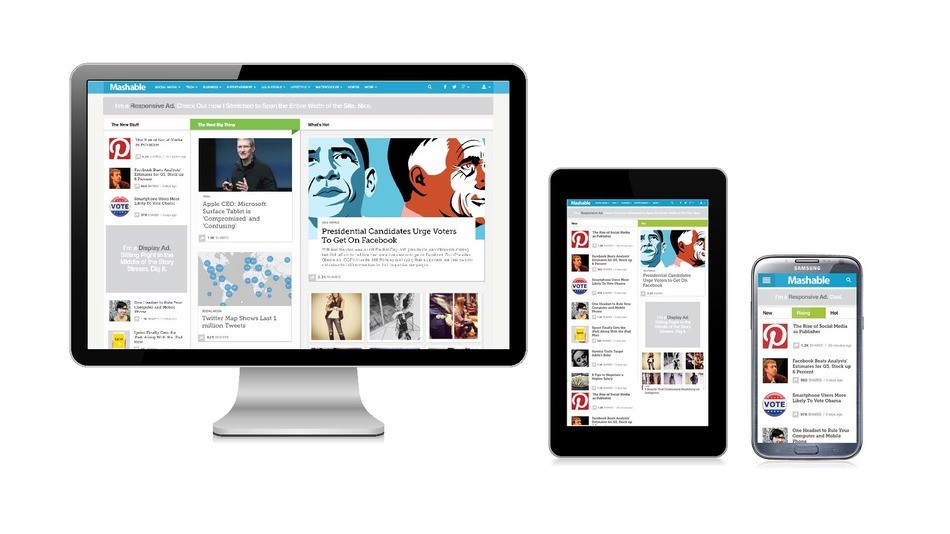Blog
How Responsive Design Will Help Your Business
July 28, 2014
Posted by: Monica Selby
If you know anything about websites, you've heard the term 'responsive web design.' It's the number one trend in site design in the last 2 years, and you'll be hard pressed to find a designer not using it.
If you're not familiar with responsive web design, it's pretty simple. Basically, it just means that a website's pages reformat themselves to fit whatever device they're being read on.
With the explosion of mobile and tablets, everyone is browsing the Internet on the go, and if you want to increase exposure, your website has to be accessible and coherent across all those platforms.
Here are just a few benefits of responsive web design:
Improves User Experience
Think about the last time you visited a website on your phone that was not built with responsive web design. You'll know them because of the constant zooming in and out and screen adjusting you have to do to read the content. Remember how annoying that was?
Responsive web design fixes this problem by having the content automatically reformat to fit the screen. Users are so accustomed to this functionality now that when you don’t have it, you really stand out. And not in a good way.
Increase Conversion Rates
It stands to reason that if your customers are able to read your website, they're more likely to follow through on the actions you want them to take. With so many people shopping and researching on their phones and tablets, responsive sites are much more likely to convert browsing to buying.
Besides the ease of reading your site, though, responsive web design also lets you optimize the different elements of your site. You have more freedom to test the placement of buttons and calls-to-action, allowing you to figure out what really works on mobile versus desktop.
Maximize Your SEO
Perhaps one of the greatest benefits to responsive web design is how it impacts your SEO efforts. For one thing, Google has expressed a preference for responsive web design. And, if Google says it matters--well, you should probably pay attention.
Responsive web design also helps SEO because your site will have one URL. No more m.yourcompany.com, which is a whole separate page to be indexed and searched by Google. Now, all of your content can live on one URL, and you can focus all of your efforts on optimizing that one site for the search engines.
Less Expensive to Build and Maintain
Ultimately, responsive web design saves you money. In the old days, if a company wanted to be accessible across devices, they had to build 3-4 different sites, one for each type of device out there. Then, they had to maintain all of those sites. As you probably know, that gets expensive fast.
With responsive web design, you can build and maintain one site, decreasing your technology costs significantly.
Here are DevDigital we have some of the best responsive web designers in the business. Give us a call to find out how we can help you maximize all the opportunities out there.
